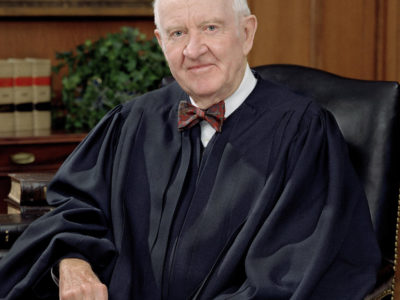Rethinking Presidential Administration
Giving the President more control of regulation has been a good thing — up to a point.
Conservatives love to complain about faceless bureaucrats, but blaming bureaucrats for regulations is hopelessly out of date. When Elena Kagan was a professor, she wrote an article called “Presidential Administration.” The article applauded her former boss Bill Clinton for seizing greater control of the regulatory process away from agencies. That trend has accelerated to the point where the White House controls even the fine details of regulation.
Two things can get sidelined in Presidential administration. One is agency expertise. No one in the White House has as much knowledge as agency experts about air pollution, or climate change, or endangered species. The other thing that gets sidelined is active implementation of the law actually passed by Congress. The White House staff who review regulations care only about costs and benefits. The President and the higher level staff care only about the President’s policy and political agendas. From their perspective, the law actually passed by Congress only matters to the extent it might let courts get in the way of those other agendas. Only the agency itself has an affirmative institutional commitment to the statute it administers.
Kagan admitted in her article that these were possible risks but thought there were sufficient safeguards to prevent them. After four years of Trump, we know that’s wrong. Kagan was right about the benefits of possible presidential administration but wrong about the risks. We shouldn’t abandon the entire idea of presidential administration. The question is whether we can shift the balance a bit in the other direction.
One helpful reform would be to make the process of White House review more public. In principle, the initial White House review process is supposed to be transparent. In reality, not very much is disclosed. As a result, the public has no way of holding the White House responsible for its regulatory rewrites. Congress can address this by expanding protection for inspector generals and whistleblowers. It should also insist that the revisions to regulations by the “regulatory czar” be made public, as should the comments on regulations by other government agencies. The only reason for secrecy is to avoid public accountability, and that isn’t acceptable.
A second reform would be for courts to give greater scrutiny when agencies reverse their positions. The current flip-flops between administrations do no one any favors. Agency reversals should require clear explanations based on evidence and legal analysis, not just shifts in the political winds.
It might also be helpful to pick someone as White House “regulatory czar” who had some degree of respect for the work of agencies. That’s up to Biden, but it’s also a question members of Congress should pursue in confirmation hearings. Presumably many past holders of the position actually did respect their agency counterparts, but that clearly has not been universal. Presidents should also consider selecting individuals with prior agency experience rather than outsiders to government.
Toning down the President’s public role in the regulatory process might also fit an important part of Biden’s agenda, which is to reduce political polarization. Dramatizing the President’s role in regulation makes outcomes more political. It may be better to express quiet support for the agency rather than trying to make every decision look as if it came directly from the President’s hands.
There are real reasons why Presidents have taken firmer control of the executive branch, and we can’t wave a magic wand and go back thirty or forty years. It’s not just a matter of Presidential ego. Presidents (and their “czars”) can add coherence and drive to the regulatory process. They also need to signal to their party bases and the public at large that they are taking action on their agendas. Thus, presidential administration is partly a necessity and partly a good thing. But there can be too much of a good thing, and centralized control of regulations is one of them.
Reader Comments
2 Replies to “Rethinking Presidential Administration”
Comments are closed.






This article seems to be mostly concerned with appearing to be balanced, moderate and reasonable, calling for more transparency etc, but its is not reasonable, it is delusional. The article effectively downplays whats been going on: the 40 year push back by industry against environmental protection that has resulted in widespread, prevailing Agency mendacity, secrecy, backsliding and deregulation. All this became the de facto regulatory implementation norm in the federal and state Executives decades ago, whatever the majority Party,
and its all but common knowledge. See, eg, “Planet of the Humans” [on YouTube].
I agree with all of this. I’d add that it is not realistic to expect agencies to implement a broad agenda during a President’s term of office if there is a lot of White House control. The bureaucracy in agencies is bad enough. You add in the White House and you’re in trouble. Furthermore, the agencies are going to need much better lawyers than they have ever had and much more flexibility to survive judicial review. Too much politics makes it impossible.